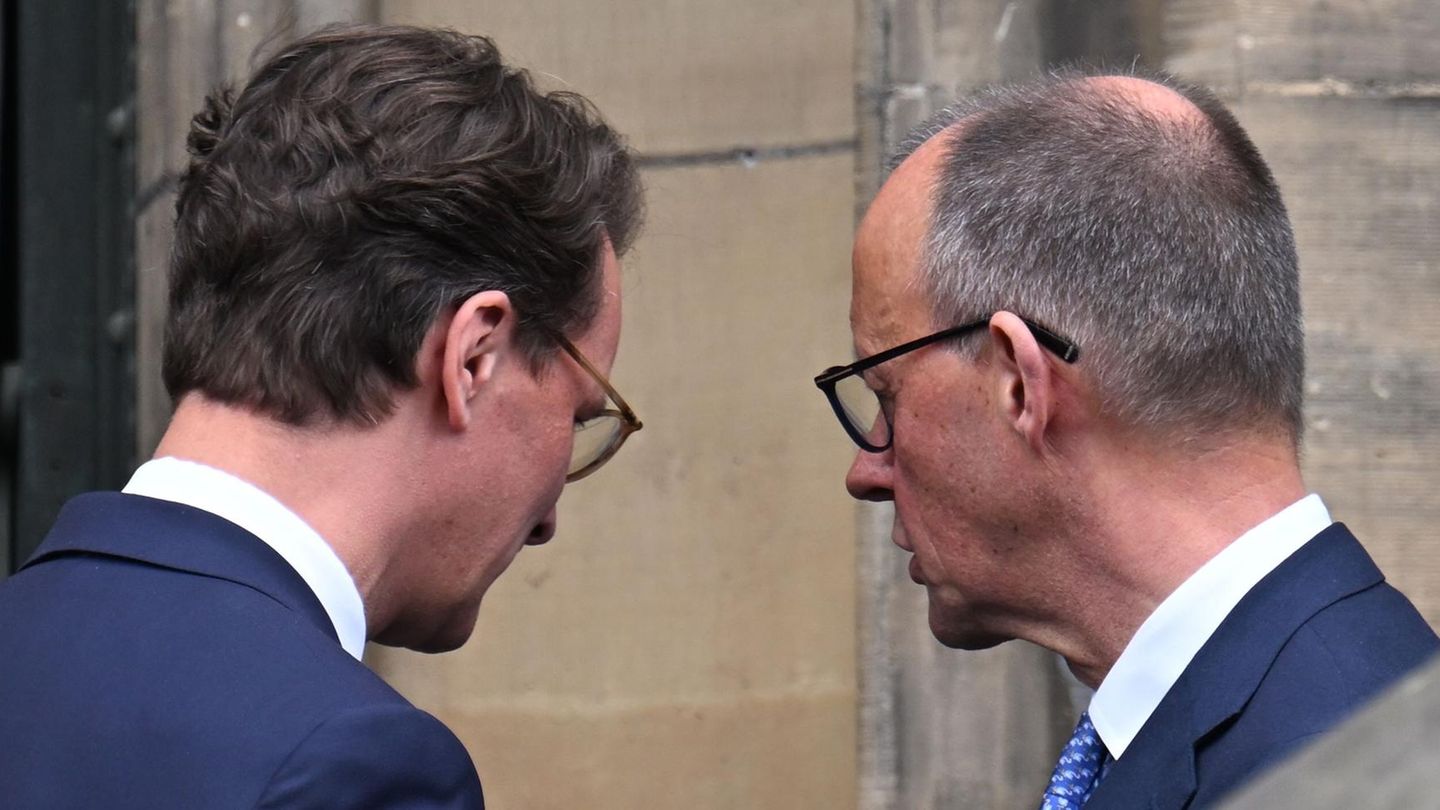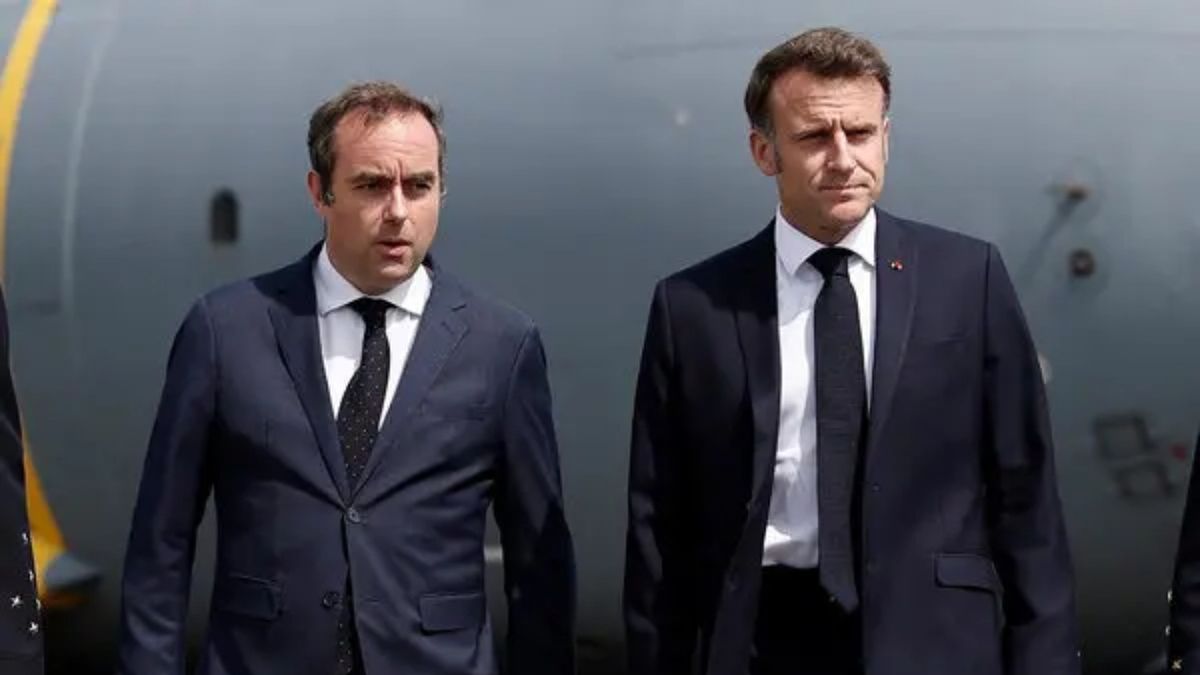Rest in the Union
CDU Minister President run Sturm against electricity tax decision
Copy the current link
Add to the memorial list
The federal government refuses to reduce electricity tax for everyone, although it has been agreed between the CDU/CSU and SPD. On the other hand, massive resistance is formed.
The CDU Minister of Minister runs storm against the decision of the Federal Government not to reduce electricity tax for all citizens and for all companies. The majority of you require a correction of the CDU, CSU and SPD coalition committee so that the promise of reducing this tax is observed for everyone.
“I further advocate to remain with the commitments made in the coalition agreement to reduce electricity tax for everyone to the European minimum,” said Saxony-Anhalt Prime Minister Reiner Haseloff (CDU) of the German Press Agency. “This also includes private households such as craft and smaller companies.”
CDU heads of government warn justice and reliability
Berlin’s governing mayor Kai Wegner called for a “clear correction”. He told the German Press Agency: “Politicians have to get noticeable relief. This is a question of justice-and people rightly expect something to happen now.”
Thuringia’s Prime Minister Mario Voigt asked for political reliability. “In uncertain times, reliability is the highest good-especially in East Germany, where many people observe political commitments particularly closely,” said the CDU politician. To question the announced electricity tax reduction for all time, at risk.
The heads of the Union and SPD had decided on Wednesday that there should be no reduction in electricity tax for all companies and for private households for the time being. However, this had announced this in the coalition agreement – but with the subject of financing.
Chancellor Friedrich Merz (CDU) and finance minister Lars Klingbeil (SPD) defended the course and referred to household constraints. According to the Federal Ministry of Finance, a reduction in electricity tax would cost around 5.4 billion euros in the coming year.
Wüst relies on post -control in parliamentary procedures
North Rhine-Westphalia’s Prime Minister Hendrik Wüst (CDU) said the “Bild” that a lower electricity tax for everyone was “a central relief of relief from the federal government”. “The federal financial situation was known to all parties when this promise was also anchored in the coalition agreement.”
He relies on a “clear post -control in the upcoming parliamentary process”. “All possibilities should be checked again how a electricity tax reduction can come promptly for everyone. This project must not simply be pushed onto the long bank,” warned Wüst.
A dozen surprising fun facts on renewable energies
The first GfK wind wheel was in …
Germany, more precisely in the Swabian Alb between Stötten and Schnittlingen. The test system was constructed by the GfK pioneer Eugen Hänle and put into operation in 1957. At that time, the power plant generated an incredible 100 kilowatt hour of electricity at 8.5 km/h. The 31-year-old Hänle was looking for a new material with which wind turbines could be realized by previously unknown size and performance. Rotor wings with a length of 17 meters should drive a generator with a nominal output of 100 kilowatts. Wind turbines of this time had rotors of ten meters in length and 6 kilowatts of power. With the steel rotors used so far, this was not possible due to the high weight. Hänle relied on the new material fiber. The technology he developed is still the basis for the production of rotor blades for wind turbines. However, economic success did not appear. Diesel aggregates were much cheaper to buy and maintain in the 1960s. Hänle implemented his GfK technology in another area: he built the first modern gliders very successfully
© Stern-Online
More
Open the image subtitle
Back
Further
Criticism also comes from the SPD side. The Rhineland-Palatinate Prime Minister Alexander Schweitzer said: “My expectation is that everyone will seriously check how to close the financing gap.” Although there is also a noticeable relief for all consumers, said Schweitzer and referred to the lowering of the network charges. “But many people still find it unfair that electricity tax is not lowered for everyone. You have to take that seriously, even in Bavaria. Here I see the Chancellor in duty.”
Schweitzer obviously alluded to the fact that from a government perspective there is no money for reducing electricity tax for private households, but for a quick expansion of the mother’s pension – a favorite project by the Bavarian CSU.
The Schleswig-Holstein Prime Minister Daniel Günther also showed little understanding in the “Berlin Playbook ” by “Politico”. “This is at least a strange setting of priorities,” said the CDU politician. “This gives deductions in the B-grade that the question has not been able to communicate.” On the effects on the government alliance of the Union and SPD, he said: “It’s a shame because it reduces the initial swing a bit.”
SPD parliamentary group leader Miersch defends decision
The SPD parliamentary group leader Matthias Miersch, on the other hand, defended the decision of the coalition committee. “If you take it carefully, we promised nothing in this coalition agreement because we said we put it under the financing reservation,” he said in the interview of the ARD week. The coalition agreement therefore contains “declarations of intent”. But one will try to “realize them all to the best of our knowledge and belief”. The electricity tax is of course on the agenda.
The SPD economist Sebastian Roloff has not yet seen the last word spoken. “I am sure that the discussion about the tax reduction will also be held in the budget committee,” said the economic policy spokesman for the SPD parliamentary group to the portal “The Pioneer”.
The trade association Germany as well as the BGA wholesale and foreign trade association ask Chancellor Merz in a joint letter to comply with the coalition’s promises and reduce electricity tax for all companies. The new federal government had started with a clear profile and has set itself the task of relieving the economy. “A broken word has now been delivered,” says the letter that is available to the German Press Agency.
The fact that the new federal government – once again – only relieved the industry is disappointing and incomprehensible. The letter also went equally to Klingbeil, Federal Minister of Economics Katherina Reiche (CDU) as well as the parliamentary group leader Jens Spahn (CDU) and Matthias Miersch (SPD).
Dpa
tiss
Source: Stern
I have been working in the news industry for over 6 years, first as a reporter and now as an editor. I have covered politics extensively, and my work has appeared in major newspapers and online news outlets around the world. In addition to my writing, I also contribute regularly to 24 Hours World.




